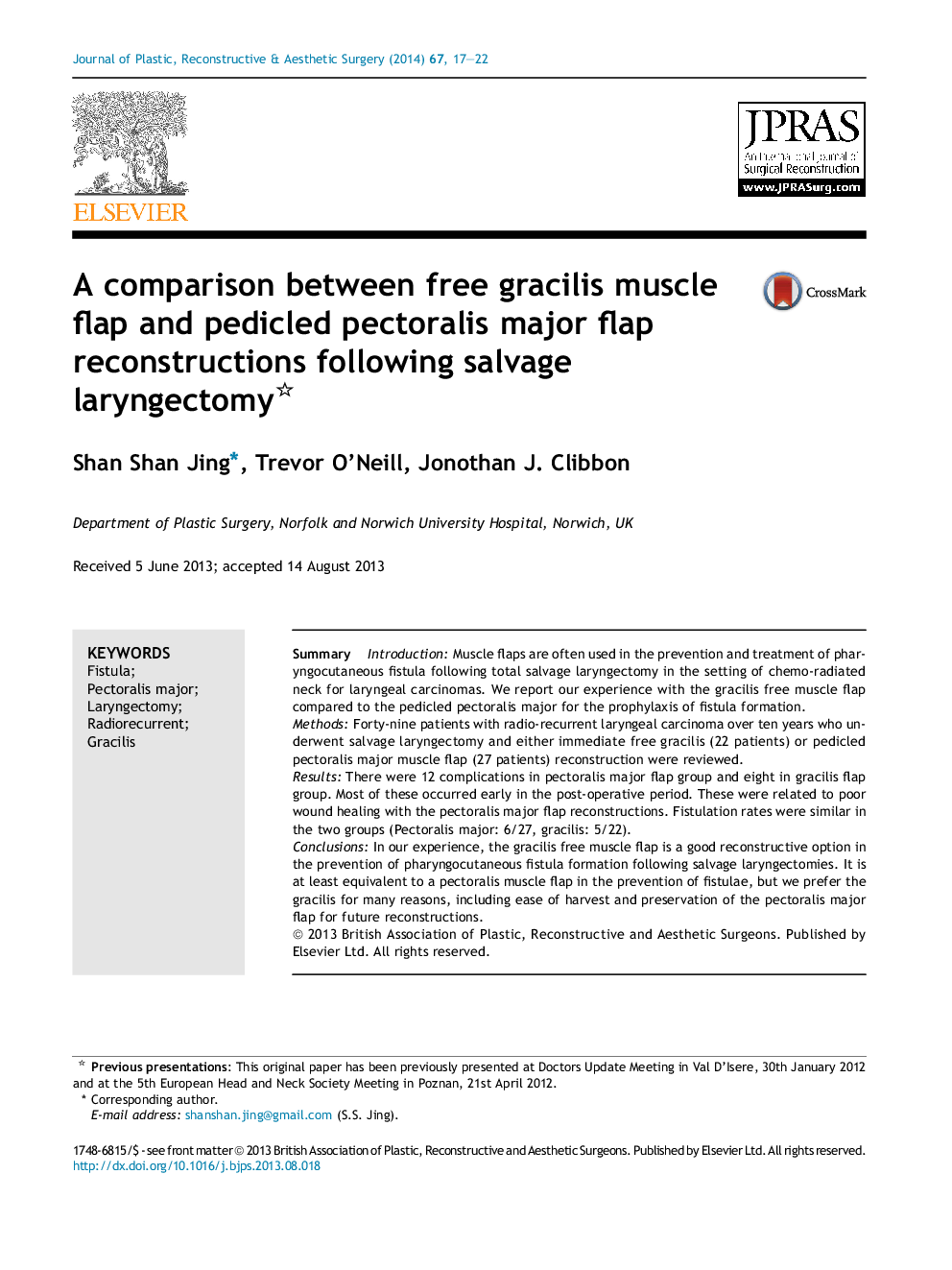| Article ID | Journal | Published Year | Pages | File Type |
|---|---|---|---|---|
| 4117753 | Journal of Plastic, Reconstructive & Aesthetic Surgery | 2014 | 6 Pages |
SummaryIntroductionMuscle flaps are often used in the prevention and treatment of pharyngocutaneous fistula following total salvage laryngectomy in the setting of chemo-radiated neck for laryngeal carcinomas. We report our experience with the gracilis free muscle flap compared to the pedicled pectoralis major for the prophylaxis of fistula formation.MethodsForty-nine patients with radio-recurrent laryngeal carcinoma over ten years who underwent salvage laryngectomy and either immediate free gracilis (22 patients) or pedicled pectoralis major muscle flap (27 patients) reconstruction were reviewed.ResultsThere were 12 complications in pectoralis major flap group and eight in gracilis flap group. Most of these occurred early in the post-operative period. These were related to poor wound healing with the pectoralis major flap reconstructions. Fistulation rates were similar in the two groups (Pectoralis major: 6/27, gracilis: 5/22).ConclusionsIn our experience, the gracilis free muscle flap is a good reconstructive option in the prevention of pharyngocutaneous fistula formation following salvage laryngectomies. It is at least equivalent to a pectoralis muscle flap in the prevention of fistulae, but we prefer the gracilis for many reasons, including ease of harvest and preservation of the pectoralis major flap for future reconstructions.
